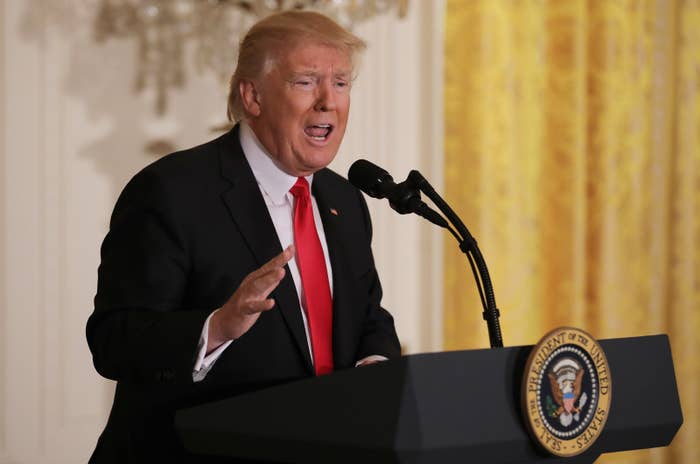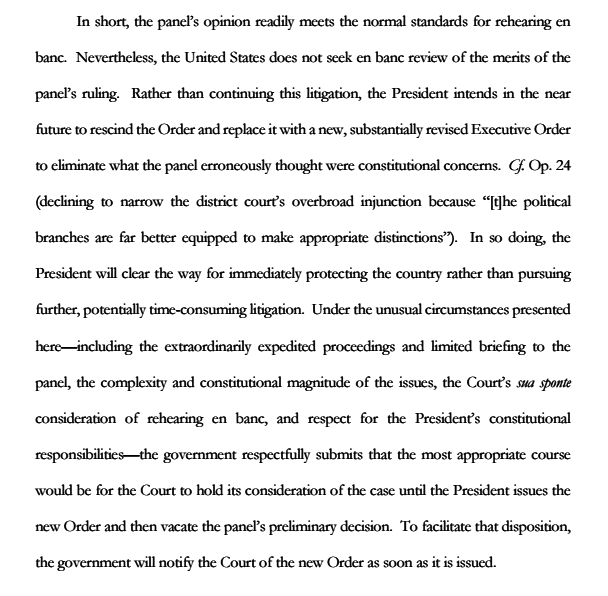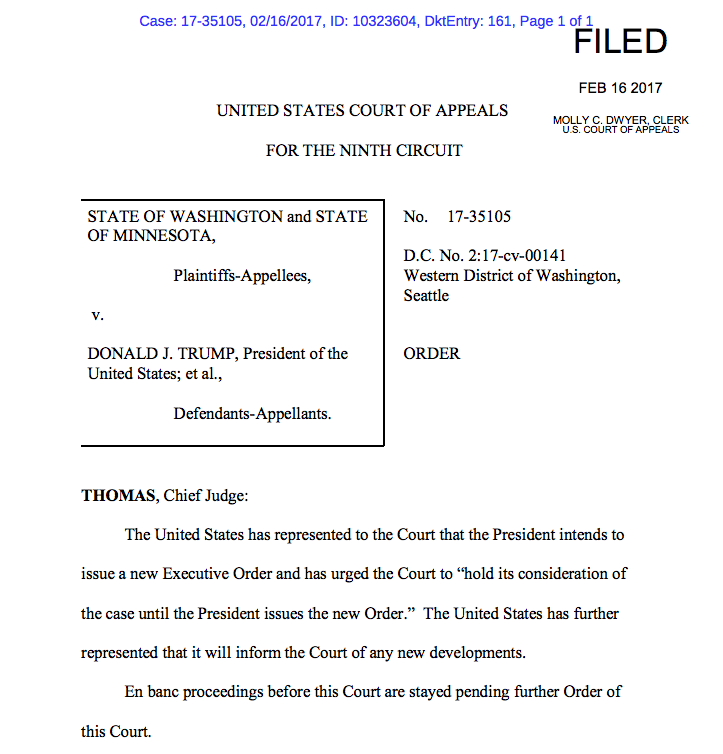
WASHINGTON — In light of the fact that President Trump announced that a new executive order would be issued soon to replace his Jan. 27 refugee and travel ban executive order, a federal appeals court agreed to put the key challenge to the ban on hold until a new order is issued.
"We're going to put in a new executive order next week sometime," Trump said at his extended news conference on Thursday. "We have some of the best lawyers in the country working on it."
Notably, in his news conference, Trump said that he had wanted a month, or at least a week, delay in when the executive order would have taken effect. Trump said, however, that Homeland Security Secretary John Kelly said no and that the order had to take effect immediately.
In the wake of the Jan. 27 order, there was significant confusion at airports and conflicting interpretations about the order from the federal government agencies responsible for implementing and enforcing it. The order and resulting confusion led to nearly immediate litigation — and quick court orders halting enforcement of some of the most harsh ramifications of the order, like deportations and detentions.
While the Justice Department in a Thursday filing harshly criticized this past week's ruling of the US Court of Appeals for the Ninth Circuit that refused to allow the government to begin enforcing the executive order while the litigation is ongoing, the department nonetheless asked for the appeals court "to hold its consideration of the case until the President issues the new Order."
Later on Thursday, the court, in an order by Chief Judge Sidney Thomas, agreed. The ban will stay on hold pending a new executive order — but so will any decision by the court whether to rehear the case with an en banc panel.
On Feb. 9, a three-judge panel of the Ninth Circuit had denied the Justice Department's request to put a district court's order halting enforcement of the refugee and travel bans on hold. The next day, a judge of the appeals court asked for all of the 25 active judges of appeals court to take a vote on whether a larger, en banc panel of the court should reconsider the Feb. 9 ruling.
The Ninth Circuit had requested the states of Washington and Minnesota, which challenged the ban, and the Justice Department to file briefs by Thursday laying out whether they thought en banc reconsideration was appropriate. Both sides said no, although the states gave different reasons.
Despite Trump and the Justice Department's criticism of the Ninth Circuit's ruling — Trump called it a "bad court" and said he had heard information about it being reversed at a high rate — Trump also said Thursday that the new order would comport with the constitutional concerns raised by the Ninth Circuit's ruling.
"We can tailor the order to that decision," he said.
(Trump also said in Thursday's news conference that the lawyers were "appealing" the Ninth Circuit's decision, which they have not done.)
Once the new order is issued, Justice Department lawyers urged on Thursday, the court should vacate the three-judge panel's decision against the administration. Such a move would eliminate the legal precedent of the appeals court's ruling against the administration.
Here's the key part of the Justice Department's argument:

And here's the court order putting their actions on hold:

